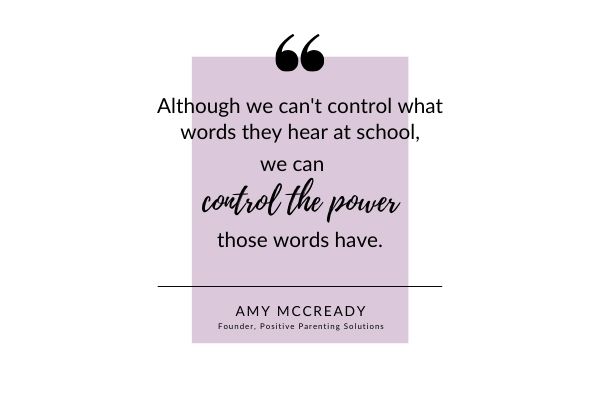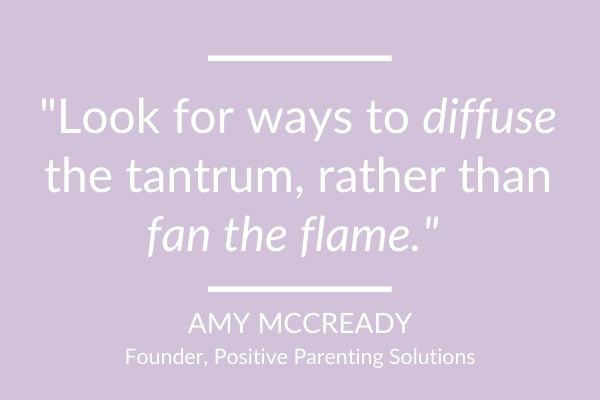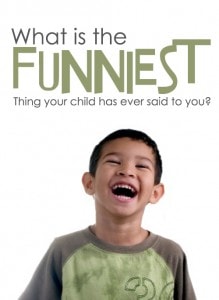

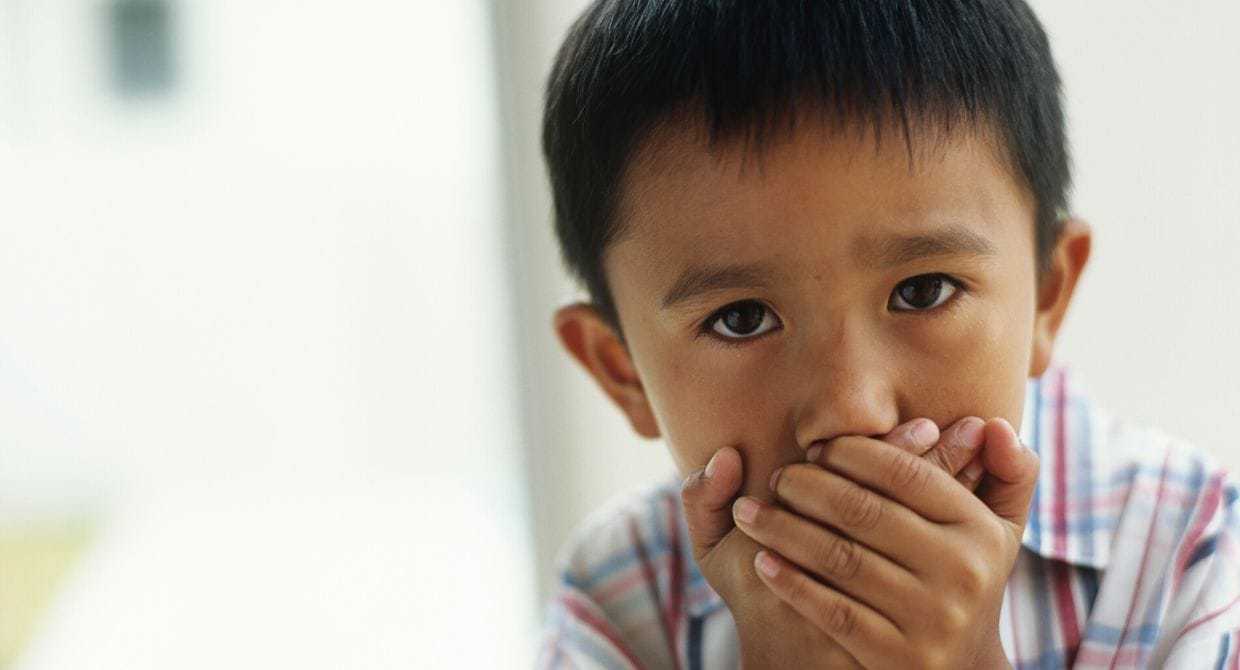
OH, FUDGE!
You know how it goes…
Your three-year-old just called you a “butt face” because you refused to give him an extra fruit snack.
Your middle schooler muttered something a little more colorful (and offensive) as she begrudgingly took out the trash this morning.
Your teenager shouted his favorite four-letter expletive when his team lost last night’s game.
Whatever the scenario, one thing is clear: any time you hear your sweet child utter some not-so-sweet language, you cringe.
“How did we get here?” you think.
Was it the time you laughed when your toddler first learned how funny potty language could be? Did they hear it at school? From friends? Around the house?
The truth is–just like button-pushing, power struggles, and backtalk–foul language and swearing is something all children experiment with from time to time. They try it out–just to see what kind of reaction they’ll get.
I’ve spent years working with countless parents who’ve found themselves stuck in one parenthood dilemma or another. From yelling, to punishments, to misbehavior in general–you name it, I’ve seen it. Which is why I even offer a FREE PARENTING WEBINAR to any parent who finds themselves in the trenches looking for a better, more positive way out.
And when it comes to potty language and swearing? I’ve got you covered there, too.
Follow these 10 tips to curb cursing and potty talk in your house…
Tip #1: Watch Your Own Language
You are your child’s first role model.
Let that sink in for a moment.
We say it all the time…that kids learn more from our actions than our words. And this is one of those situations in which they learn a LOT from both…how we ACT when we’re excited, frustrated, angry, hurt, you name it–and the WORDS we use to punctuate those moments.
And let’s be honest, sometimes a swear word just fits the bill for those big emotions we’re feeling.
In fact, studies show that swearing can actually produce a therapeutic or cathartic effect. And while it can be temporarily satisfying for us, we all know it doesn’t set the best example for our kids!
So, in an effort to be the best role model for our kids, we must be careful to present OUR best self to our kids and, of course, that means curtailing our cursing!
Curious as to how this can be done?
Find a Curse Word Alternative
To jump-start the process, decide on a G-rated replacement word or phrase to use during those stressful moments when every fiber of your being wants to swear. It will take some practice but within a few days or a week, those curse-bombs will appear less often and more positive language will start to pop up in front of your kids.
Not only should we cut back on the swearing, but we should also be mindful of how we speak to others throughout the day and the week. Try this…
Speak With A Smile
Let’s do an experiment, shall we? It may sound simple but it’s powerful.
For one week, aim to say whatever you have to say…with a smile on your face. (Even if it’s a little fake!)
Sounds simple, right? But I can assure you, this is so powerful! When we speak with a smile on our face we naturally communicate more positively. Not only will we find ourselves being more encouraging to others, but we’ll be less likely to respond from the gut with a curse word or an unpleasantry!
Remember, our kids are always listening (even when they don’t appear to be). So it’s important to speak respectfully to them, our parenting partner, our family, and our friends. Be a model for appropriate language.
Oh, and beware of this … the dreaded double standard. You know the one, “I’m an adult and I’m allowed to use adult language.” Our kids are keenly sensitive to double standards. If it’s okay for us to swear, they don’t understand why it isn’t okay for them.
Tip #2: Use the Right Terminology for Body Parts
There is a reason why the word “butthead” is enough to send your toddler (and maybe even your older children) into a fit of laughter. It’s exciting for them!
And should you tell them not to say it? Well, nothing piques a child’s interest in a word more than being told they can’t say it.
Although we can’t control what words they hear at school, we can control the power those words have. This can be done by minimizing our kids’ exposure to them and by taking away the excitement–that wow-factor–by simply using the correct terminology when referring to body parts.
Want an added benefit? Teaching them the appropriate names for body parts and using them conversationally is a wonderful way to aid in the prevention of sexual abuse.
Pro Tip: For Positive Parenting Solutions Members, review the advanced training module “How to Talk to Modern Kids About Sexuality” for more helpful information.
 Tip #3: Make This a Learning Opportunity
Tip #3: Make This a Learning Opportunity
As much as we would like to raise children who never say anything negative–nevermind curse or use potty language–that just isn’t realistic. Our kids will experiment with bad words at one time or another.
Parents often ask me what are some effective and “related” consequences for swearing. Since you can’t really take away your child’s ability to use bad language, this can be rather tricky to do.
However, you can make this a learning opportunity!
Educational Psychologist and author, Michele Borba, Ed.. suggests requiring the offender to look up a new, more appropriate word in the dictionary to replace the offensive one. They can then be asked to use that new word throughout the day in conversation or write it on an index card and teach it to the rest of the family.
Tip #4: Don’t Overreact!
Did you laugh hysterically when your barely-verbal two-year-old called the dog a “poopie head?” Where did he even hear that?
And, did you blow up in epic proportion when your teen dropped his third F-bomb that morning? How could he be so disrespectful after all you do for him?
I get it. It can be so hard to keep your cool when your child decides to drop a curse word. Your “practically involuntary” responses in these situations are perfectly understandable.
But really try to remain calm.
Unfortunately, whether our kids are toddlers, tweens, or teens, the truth is an overreaction–of any sort–creates a payoff for the behavior. Our response will likely be seen as a big win for our children, causing them to want to say it again, and again, and again…
Think about it … our kids have learned from experience that potty talk or cursing is a trigger for us. They’ve seen it push our buttons time and time again.
So when our kids let the foul language rip, more likely than not, they’re using it as an invitation to engage us in a power struggle. They say a bad word, we react and lose our cool–reinforcing that behavior and just about guaranteeing they’ll use that language again.
It’s a vicious cycle and oh so maddening for parents. So what can we do?
Remove our reaction.
This. Is. Hard.
BUT with a little advanced preparation on our part (like with Tip #7 below!), we can actually completely remove that power payoff, simply by keeping a level head. Do this enough times and we’ll begin to hear less cursing, potty talk, and bad language coming from our child’s mouth.
Tip #5: Emphasize Family Values
I am a firm believer that every family should adhere to a set of clear and concise values and refer back to them whenever conflict arises. These can cover anything from how each member of the family is expected to partake in family contributions around the house to what language is and is not allowed.
Is your daughter’s best friend’s cousin allowed to drop an F-bomb whenever she feels like it? Be clear and concise with your child about what kind of language is and is not allowed by setting clear expectations.
Explain it to her simply. “I understand that you hear other kids use that word, but in this family that kind of language is not allowed.”
Sure, we may get a few eye rolls, some grumbling, maybe even a bit of sass, but emphasizing our family’s values (and modeling them for our kids) will ensure our children know exactly what is and is not expected of them when it comes to bad language.
Pro Tip: Family meetings are a great place to set and go over your family values! For Positive Parenting Solutions Members, review Step 6 of the 7-Step Parenting Success System® course to learn how you can use family meetings to connect, problem solve, and have FUN!
Tip #6: Understand the Situational Context
Sometimes, as parents, we can jump to conclusions while only getting a small glimpse of the whole picture.
Does your teen swear on a regular basis, or just when he is around his friends? Is stress a factor? How about anger?
For older kids who swear, it’s important to try and understand where it’s coming from. Once we determine the root of the problem, then we can dive in for a solution.
For example, if their swearing stems from anger, validate his feelings while also suggesting others ways he can communicate his feelings more respectfully.
“I can tell you’re really angry about this. I would love to talk to you about it when you’ve calmed down and we can have a respectful conversation.”
And just know, our child’s swearing is not always a reflection of our parenting.
It can be so easy to take what they say personally, wondering just where we went wrong or how we influenced this type of behavior. But sometimes, it simply isn’t about us.
Dig a little deeper to try and get to the root of the problem. And know that you’re doing a great job.
Tip #7: Decide What YOU Will Do
You’ve tried time-outs, taking away privileges, and an endless list of consequences, but still your son refuses to stop with the potty language.
Now here you are, trying your best to resist your well-meaning grandmother’s “bar of soap” recommendation. Still, you have to admit, you have no idea what to do next.
The truth is, we can’t make our child actually stop using potty talk or swearing. After all, he is in control of his mouth and his voice. Short of duct-taping his mouth closed, we can’t control what comes out of it. (By the way, we do NOT advocate duct-taping!)
So what can be done?
Take action!
Now’s the time to decide what YOU will do whenever you hear any offensive language.
One possible solution? Know when to walk away.
Let your child know that when you hear him using disrespectful language, you will turn around and walk away without saying a word. Let him know you love him too much to argue with him and you certainly wouldn’t want to say anything that you would regret later. (This models personal responsibility, by the way.)
This is NOT about letting him get away with cursing, it simply removes the “payoff” for the behavior and shows him that you deserve to be treated with respect. Don’t tolerate anything less.
In short, as parents, our actions speak much louder than our ongoing lectures.
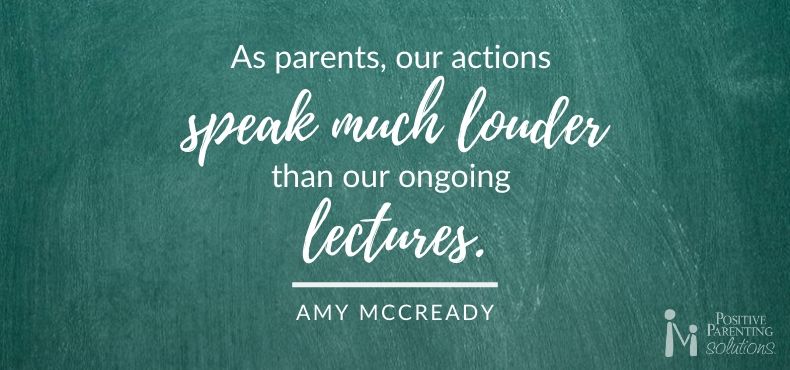
Tip #8: Monitor Screen Time, Music, and Internet Use
One minute you’re happily jamming to the radio as you drive your twelve-year-old daughter to school, then the next you’re in shock, jaw on the floor as you hear her drop each lyric–curses and all–as if she were Nicki Minaj herself.
This is such a hard reality for so many parents to face, especially at this age when their children are starting to make the transition from childhood to the teenage years.
Call it a harsh reality of the times, but our children are exposed to so much more than we ever were at their age. Whether it’s the lippy sass from their favorite sitcom character, the M-rating on the hottest video game on the market, or the slew of nasty comments littered across social media–there’s simply no getting around their exposure to harsh language.
The key is to manage it!
If you’re not comfortable with the language or values being thrown at your child, it’s time to have a candid conversation with your kids. Monitor their screen time, listen to their music, and keep an eye on their internet usage.
Now, you may be thinking, “Amy, I am already so busy. How on earth am I supposed to monitor my child’s technology on top of everything else I have to do?”
Believe me, I understand just how impossible this may seem. But I promise you, a solution is right at your fingertips! Give my FREE PARENTING WEBINAR a try. There I’ll show you a step-by-step process for consequences you can use to monitor your child’s use of technology.
There is no need to fear the world your child is becoming more and more a part of–it will exist no matter what. But you can always be proactive in how you manage it in your own household.
Pro Tip: Worried about your child’s backlash when monitoring their screen time? Positive Parenting Solutions Members can review the “Family Technology Survival Plan” advanced training and learn how to implement technology boundaries you all feel good about–while having a solid plan for any whining, complaining or negotiating that may arise!
Tip #9: Encourage Good Language Choices
As with anything, when you see your child making good choices, encourage them!
Did your toddler use an appropriate term for one of his body parts?
Encourage him by saying, “Thank you for using appropriate language when talking about your body. You are really growing up!”
Did your teenage daughter stop herself just short of cursing at her little brother to get out of her room?
Let her know, “I see how hard you’re working at editing your language and want you to know how much I appreciate the effort.”
Encourage your children because they are making progress in the right direction. And every step–no matter how small–matters!
Tip #10: Give Legitimate Power and Control
When cursing is intentional, it’s usually a power play. Our children know it will trigger us into giving them attention. When that’s the case, the best thing we can do is find a way to give them legitimate power and age-appropriate control.
So how can we do this? Give them a healthy dose of control over certain areas of their life. That could be picking out clothes, choosing what to have for breakfast, or picking out their favorite book to read before bed.
For older kids, you can try giving them a little more control over how they structure their day. Would they rather do homework before dinner or after? Would they like a ride to school or to take their bike?
A child who has sufficient positive attention and opportunities to exercise power in positive ways doesn’t have to use foul language to turn our head.
Pro Tip: For Positive Parenting Solutions Members, review Steps 3 and 4 of the 7-Step Parenting Success System® course for plenty of ideas on how to empower your children without breeding entitlement.
Final Thoughts
Children use potty language and swearing for a variety of reasons, and for most parents, it can be incredibly frustrating!
If you’re currently wading through the filth, trying to figure out how to clean up your child’s language, just know that you are not alone and help is out there.
If the swearing and foul language are becoming more frequent and increasingly offensive, it’s probably not about the “swearing.” Most likely, your child is using bad language as a potent tool to engage in a power struggle or even as a vehicle for revenge. At this point, it’s time to dig deeper and determine what’s really behind the behavior.
Feel free to join me for a FREE CLASS to see if the 7-Step Parenting Success System® course is right for you. We’d love to help you through every parenting trial you face, and celebrate with you during every success!
